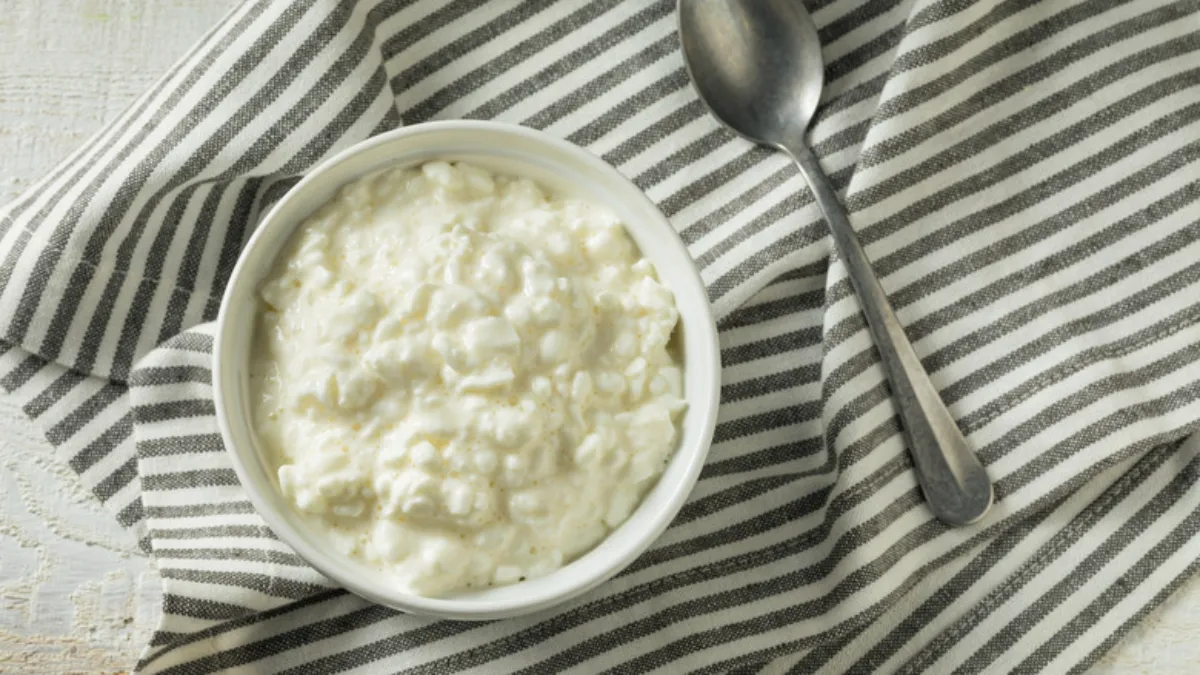Cottage cheese, with its creamy curds and versatile applications, has earned a reputation as a nutritious dairy delight. For those seeking a protein-packed addition to their diet, cottage cheese stands out as a formidable source. In this article, we’ll explore the protein content of cottage cheese, its nutritional benefits, and how it can play a role in meeting your daily protein requirements.
1. Protein Content in Cottage Cheese:
Cottage cheese is renowned for its impressive protein content, making it a favorite among fitness enthusiasts and those looking to support their active lifestyles. The protein content in cottage cheese can vary based on factors such as the type of milk used and the curd size. However, as a general guide:
- Standard Cottage Cheese (1 cup): A typical one-cup serving of cottage cheese can provide approximately 28 grams of protein. This substantial protein content makes cottage cheese a standout option for individuals aiming to meet their daily protein goals.
- Low-Fat or Fat-Free Options: While standard cottage cheese contains some fat, individuals looking for a lower-fat option can opt for low-fat or fat-free varieties. Even in these options, cottage cheese remains a significant source of protein, with approximately 14-20 grams of protein per cup.
2. Nutritional Benefits of Cottage Cheese:
Beyond its protein prowess, cottage cheese offers a range of nutritional benefits, making it a valuable addition to a well-balanced diet:
- Calcium: Cottage cheese is rich in calcium, essential for maintaining strong bones and teeth. Adequate calcium intake is crucial for overall bone health.
- B Vitamins: Cottage cheese contains various B vitamins, including B12, which plays a vital role in nerve function and the formation of red blood cells.
- Phosphorus: This mineral is essential for supporting bone health, energy metabolism, and kidney function.
- Probiotics: Certain cottage cheese varieties may contain probiotics, beneficial bacteria that promote a healthy gut microbiome and aid in digestion.
3. Incorporating Cottage Cheese into Your Diet:
- As a Snack: Enjoy cottage cheese on its own or topped with fresh fruit for a satisfying and protein-rich snack.
- In Smoothies: Blend cottage cheese into your favorite smoothies for a creamy texture and an extra protein boost.
- Salad Toppings: Add cottage cheese as a protein-packed topping to salads, enhancing both texture and nutrition.
- Culinary Creations: Use cottage cheese in various recipes, from savory dishes like lasagna to sweet treats like cheesecake.
4. Considerations and Varieties:
- Lactose Sensitivity: Individuals with lactose sensitivity may find that cottage cheese, especially low-fat or fat-free options, is easier to digest.
- Salt Content: Some cottage cheese varieties may have added salt. Choosing low-sodium options can be beneficial for those watching their salt intake.
- Organic and Artisanal Options: Exploring organic or artisanal cottage cheese options may offer additional flavor profiles and potential health benefits.
In conclusion, cottage cheese stands as a nutritional powerhouse, delivering a substantial protein payload along with a range of essential nutrients. Whether enjoyed on its own, incorporated into meals, or blended into culinary creations, cottage cheese offers a versatile and delicious means of meeting your protein needs. So, whether you’re aiming to support muscle health, enhance your overall nutrition, or simply savor a tasty and protein-rich snack, cottage cheese proves to be a wholesome and satisfying choice.


